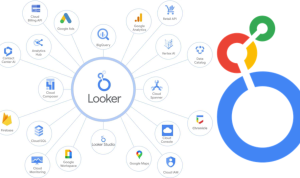Business Intelligence for Startups: What Founders Should Know – Business Intelligence for Startups What Founders Should Know sets the stage for this enthralling narrative, offering readers a glimpse into a story that is rich in detail. In today’s dynamic business landscape, harnessing the power of data is essential for startups looking to thrive. By understanding business intelligence, founders can make informed decisions, identify market trends, and ultimately drive their ventures towards success.
This guide delves into the significance of business intelligence, exploring the tools and strategies that can turn raw data into actionable insights. Whether it’s understanding customer behavior or optimizing operations, effective use of business intelligence can set a startup apart from its competitors.
In the ever-evolving landscape of technology, the importance of understanding the impact of digital transformation on various sectors cannot be overstated. As organizations continue to adapt to rapid advancements, the need for a strategic approach to harnessing technology becomes paramount. This article aims to explore the key elements of digital transformation, its implications for businesses, and the future trends that are shaping this dynamic field.
Digital transformation is not merely about adopting new technologies; it’s a holistic process that redefines how organizations operate and deliver value to their customers. It encompasses a wide range of areas, including business processes, organizational culture, customer engagement, and the use of data and analytics. As companies embark on their digital transformation journeys, they often encounter challenges that require a thoughtful strategy and a commitment to change.
One of the primary drivers of digital transformation is the need for improved customer experience. In today’s digital age, consumers expect seamless interactions with brands across various channels. Companies must leverage technology to meet these expectations, using data analytics to gain insights into customer behavior and preferences. This understanding enables businesses to personalize their offerings and create more meaningful engagements.
For instance, e-commerce platforms utilize AI algorithms to recommend products based on past purchases, enhancing the shopping experience and driving sales.
Another critical aspect of digital transformation is the optimization of internal processes. By adopting automation and digital tools, organizations can streamline operations, reduce costs, and improve efficiency. For example, robotic process automation (RPA) can handle repetitive tasks, freeing up employees to focus on higher-value work. This shift not only boosts productivity but also fosters a culture of innovation, where employees are encouraged to develop new ideas and solutions.
Moreover, the impact of digital transformation extends to data management and analytics. As businesses generate vast amounts of data, the ability to analyze and leverage this information is crucial. Advanced analytics and machine learning algorithms enable organizations to identify trends, forecast demand, and make data-driven decisions. This capability not only enhances operational efficiency but also positions companies to respond quickly to market changes and customer needs.
The role of leadership in driving digital transformation cannot be overlooked. Leaders must champion the change and cultivate a culture of agility and innovation within their organizations. This involves empowering teams to experiment with new technologies and fostering an environment where failure is viewed as a learning opportunity. Additionally, effective communication about the benefits and goals of digital transformation is essential to garnering buy-in from employees at all levels.
As we look to the future, several trends are likely to shape the landscape of digital transformation. One significant trend is the rise of artificial intelligence (AI) and machine learning. These technologies are becoming increasingly integral to various industries, enabling companies to automate processes, enhance customer interactions, and make more informed decisions. AI-driven chatbots, for instance, are transforming customer service by providing instant responses and support around the clock.

Another trend is the growing emphasis on cybersecurity. As organizations adopt digital tools and move more of their operations online, the risk of cyber threats increases. Companies must prioritize cybersecurity measures to protect sensitive data and maintain customer trust. This includes investing in robust security protocols, employee training, and incident response strategies to mitigate potential breaches.
Furthermore, the shift towards remote work has accelerated the need for digital transformation. The COVID-19 pandemic forced many organizations to rapidly adapt to remote operations, highlighting the importance of digital collaboration tools and cloud-based solutions. As remote work becomes more commonplace, businesses must continue to invest in technology that facilitates communication and collaboration among dispersed teams.
In conclusion, digital transformation is a multifaceted journey that requires a strategic approach and a commitment to continuous improvement. By focusing on customer experience, optimizing internal processes, leveraging data analytics, and embracing emerging technologies, organizations can position themselves for success in the digital age. As we move forward, it is essential for leaders to drive this transformation with a vision that prioritizes innovation, agility, and resilience.
The future of business will undoubtedly be shaped by those who are willing to embrace change and invest in their digital capabilities. As technology continues to advance at an unprecedented pace, the organizations that adapt and thrive will be those that view digital transformation not as a one-time initiative, but as an ongoing journey towards excellence.




